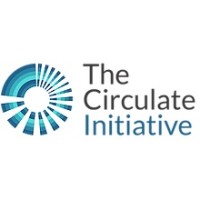Measuring Our Success: How Better Data Can Help Keep Plastic Out of the Ocean
This report, authored by The Circulate Initiative, examines the importance of robust data in addressing ocean plastic pollution. It emphasizes that a lack of accurate and accessible information about plastic waste flows hampers global efforts to reduce the annual leakage of plastic into the ocean, currently estimated at 8 million metric tons. The report underscores the need for comprehensive measurement and monitoring systems to enable effective interventions, particularly in emerging markets.
The findings highlight critical gaps in understanding the flow of plastic waste, its sources, and the effectiveness of current mitigation strategies. The report identifies four primary areas where improved data collection and analysis are essential: establishing baseline data on plastic waste leakage, identifying impactful solutions, monitoring progress, and verifying outcomes. Some examples of existing tools, such as mapping and footprinting systems, are discussed alongside the challenges posed by fragmented methodologies and limited data sharing.
The report stresses that achieving meaningful change requires harmonized definitions and measurement approaches across stakeholders, including governments, businesses, and non-profits. It also notes the need to incorporate broader social, economic, and environmental impacts into the evaluation of interventions, such as the role of waste workers and the benefits of shifting to circular economy practices.
Five actionable recommendations are proposed to address these gaps. These include standardizing metrics and accounting methods, making decision-making tools more locally relevant, fostering collaboration in data collection, expanding definitions of success to include diverse impacts, and aligning available resources to reduce fragmentation.
The report concludes that closing these data gaps will accelerate global efforts to prevent plastic waste from entering the ocean. Improved measurement systems can drive more targeted investments, align stakeholders, and support the development of inclusive and sustainable waste management solutions.

